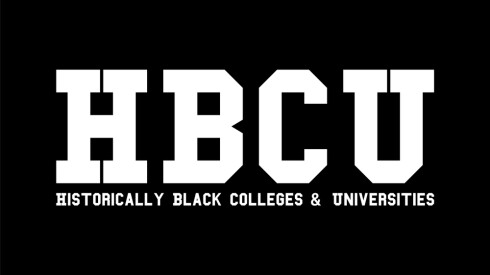Digital Transformation
Coverage of the movement away from physical textbooks and classrooms toward digital operations in K-12 schools and higher education. Examples include virtual classrooms and remote learning, educational apps, learning management systems, broadband and other digital infrastructure for schools, and the latest research on grading and teaching.
-
Screen time leads to less retention and more multi-tasking than focus, so maybe schools should evaluate how a reliance upon digital devices has contributed to plummeting student test scores, engagement and mental health.
-
New features in Internet2's Cloud Scorecard for research and education enhance search capabilities and include questions about artificial intelligence to help institutions find cloud services that best fit their needs.
-
Getty Images and Ancestry will help historically Black colleges and universities preserve their records in digital form, allow them to collect licensing fees, and give students access to ancestry.com.
More Stories
-
A video by the Ottawa Symphony about the possibilities of using new technologies in instruments inspired a Washington County, Calif., music teacher to experiment with 3D-printing them for her students.
-
In response to a rise in theft and cheating on paper exams, most Advanced Placement exams will move to a digital format next month, which proponents say will improve accessibility as well as the overall test experience.
-
A retiring director of digital learning for Carlisle Area School District, Pennsylvania, reflects on a career's worth of technological transformation, from early video conferences to 1:1 devices to AI.
-
The nonprofit National Writing Project and online writing platform NoRedInk are starting an online information-sharing community and offering free webinars for educators on the impact of AI on writing instruction.
-
Education leaders said the order creates important momentum, but they expressed concerns about sustainable funding and whether ed-tech leaders will have a seat at the table to help shape the directive’s initiatives.
-
The State Bar of California stirred some controversy when it disclosed that some questions on this year's exam were developed with the assistance of AI by ACS Ventures, the State Bar's independent psychometrician.
-
Through separate partnerships with the two companies, the education nonprofit ISTE+ASCD hopes to make social media more accountable and students more knowledgeable about healthy tech use.
-
In the face of stress and uncertainty around the future of higher education, the CIO of a community college in Oregon suggests a CARES framework of priorities: communicate, adapt, relationships, empower and stay calm.
-
The technology of refrigeration changed not just what and how we eat, but also the economy, international trade and even the atmosphere. When educators teach students about AI, they need to think beyond computers.
-
After voters declined to pass a larger ballot proposal last year, Helena Public Schools are asking voters to approve a smaller amount to replace aging laptops, desktops and teacher devices.
-
As bus drivers for Boston Public Schools got used to a new bus-tracking app, software allowed the district to collect and update real-time data on every bus route to make them more efficient.
-
Many U.S. school districts have turned to technology, especially digital surveillance, as the antidote to campus violence. Not everyone is sold on that approach, as it can raise issues with privacy and security.
-
This fall, a private university in Michigan will offer online doctorate programs in health sciences and business administration, the latter with a focus on applied research and emerging technologies.
-
At the Consortium for School Networking’s annual conference in Seattle last week, three superintendents shared how school leaders can explore new technology while safeguarding students and the quality of their education.
-
A 2023 law prevents Northwestern School Corporation from charging student fees to pay for devices, so the school board is pursuing a $1.5 million bond project to cover the cost of new iPads for students.
-
A Monday workshop at the Consortium for School Networking's annual conference in Seattle offered templates for systems and standards to prevent gaps in equity, privacy and security for education technology.
-
A private university in Connecticut will use a predictive analytics system called Tiber Analytics to give students feedback and help them assess their chances of success in the first year of medical school.
-
Starting May 1, a new virtual parking system will use license plate recognition technology in place of physical parking permits, although it will require vehicle owners to display a front plate if they back into a spot.
Most Read
- Proposed L.A. Budget Cuts Would Deeply Impact Its IT Agency
- AI Set to Flag Potential Crime in New York City Subways
- How can you celebrate Star Wars Day with Alexa?
- Tariff Uncertainty, Budget Constraints Create ‘Tricky’ Budget Picture for States
- Chattanooga, Tenn., Apprenticeship Hub Helps Talent With AI





























